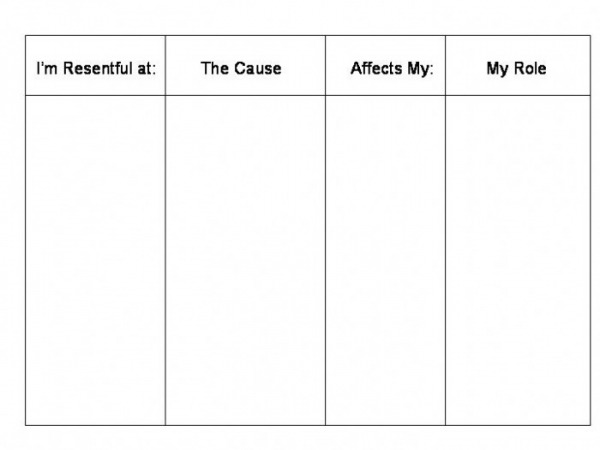Moral Inventory
Two of AAs twelve steps suggest a "moral inventory" - step 4 "Made a searching and fearless moral inventory of ourselves" and step 10, "Continued to take a personal inventory and when we were wrong promptly admitted it." As pointed out in the AA literature, the assessment of what areas of our character could be improved is very old and common to many religious traditions.
A couple of definitions might help: "moral" typically means right and wrong, and "inventory" as in a business means an actually adding up of each type of item on hand. A moral inventory is an assessment of areas where we could stand some improvement.
Why is this important to spiritual growth? Partly because the greatest growth opportunities are in the areas where we are weakest and partly because most people have an amazing ability to ignore precisely those areas! Behavior that does not measure up to what we believe is "right" or "good" drives a wedge between us and whatever we conceive of as a higher power. This increased distance makes it even harder to get back to zero, let alone start the path of growth in the positive direction.
If we have a mechanical process (a tool) that helps us face up to our shortcomings, we will naturally want to improve them. The Big Book provides just such a simple, step-by-step process. A table with three columns is included on page 65. The titles of the columns are: I'm resentful at:; The Cause; Affects my. The following page suggests a fourth column describing My Role.
This gives us a very direct way to get at what's going on inside, since most people are more than happy to talk about people or institutions who they are carrying a grudge against. The procedure is simple too: go down the first column listing names, then go down the second column inserting a brief summary of the story, then go down the third column and insert which of the five choices listed in the Big Book has been affected (self-esteem, security, ambitions, personal, or sex relations).
Finally, the fourth column is the point of all this: what was my role in each instance? How did my behavior lead to the behavior of the other people involved. The purpose is not to create an extensive biography or to list each and every incident of resentment in my life; the purpose is to find the common threads that lie behind most or all of these incidents.
What areas am I most sensitive to?
What actions do I typically take that cause other to re-act?
What Character Defects do these incidents illuminate?
The Big Book then goes on to suggest a Sex Inventory and a Fears Inventory of our past behavior. The purpose is the same - attempting to illuminate our character defects, places where we could stand some improvement.
See Wikipedia on Moral Inventory.


